Chronic Post-Surgical Pain
Are you having surgery? Learning more about pain can help with the road to recovery.
Experiencing pain after surgery is normal and is often due to inflammation in the part of the body where surgery occurred. This type of pain is called acute post-surgical pain and is short-term, generally less than three months. However, 5-10% of patients who undergo major surgery develop chronic post-surgical pain, which is pain that persists past the normal healing process (generally longer than three months).
Pain following surgery lasting beyond the expected healing time, localized at the surgery site.
You have greater risk in developing chronic post-surgical pain if you are struggling with pain management or have an:
- History of depression and/or anxiety
- History of substance dependency or addiction
- History of chronic pain
- History of use of opioid medication
To prevent long-term, excessive opioid use or the development of chronic pain and related disability following surgery, programs offering multidisciplinary services are available in some regions. Pioneered at the Toronto General Hospital's Department of Anesthesia and Pain Management (Pain Clinic | Transitional Pain Service | Toronto), these programs offer what we call “Transitional Pain Care” where support is provided to high-risk patients before and after surgery. Talk to your local healthcare provider if these programs may be available in your region.
At the NLHS, the Transitional Pain Program (TPP) focuses on treating patients undergoing Total Knee and Total Hip Arthroplasty that are at risk of transitioning from acute to chronic pain following surgery. The Program is designed to offer additional pain management beyond the services provided by the Total Joint Arthroplasty Clinic at NLHS. The goal of this innovative program is to provide patients with additional resources to avoid ongoing pain and achieve the best outcome possible from their surgery. The NLHS Transitional Pain Program also helps patients who take high dose opioids and need help with medication management and opioid weaning. The Program uses a multidisciplinary treatment approach that addresses the medical, psychological, and physical components of pain management.
If you are part of the NLHS Transitional Pain Program, we invite you to consult the following resources to learn more about the Program and additional resources to help you optimize your success to recovery.
The Role of Psychology in the Treatment of Pain
The Role of Psychology in the Treatment of Pain
Topic
Pain and SurgeryDeveloped by: The Transitional Pain Service at the Toronto General Hospital.
Summary: The effective treatment of ongoing pain involves a combination of approaches that focus on the body and mind. This self-directed learning course aims to better prepare patients for transitional pain care or pain after surgery. Access this 7-module course to learn how psychological techniques and strategies can help in managing pain. This course also includes information and resources to help you prepare for an appointment with a pain psychologist at a transitional pain clinic near you.
The Role of Psychology in the Treatment of Pain offers
Self-directed Courses
Prehabilitation: Better before. Better after.
Prehabilitation: Better before. Better after.
Topic
Pain and SurgeryPresented by: The Doctors of British Columbia (BC) and the BC Government.
Summary: These videos were created for the BC Patient Prehabilitation Program, as part of the Surgical Patient Optimization Collaborative (SPOC), an initiative of the Doctors of BC and BC Government through the Joint Collaborative Committees. BC Surgical Patient Prehabilitation is designed to assist patients to prepare for an elective procedure, so they experience improved outcomes from their surgery. It focuses on both the mental and physical aspects of surgery, therefore decreasing pre-surgical risk factors so that patients can obtain high quality outcomes from their surgery. With these 14 short videos (1-2 minutes each), you will learn about prehabilitation and all its components.
Prehabilitation: Better before. Better after. offers
Videos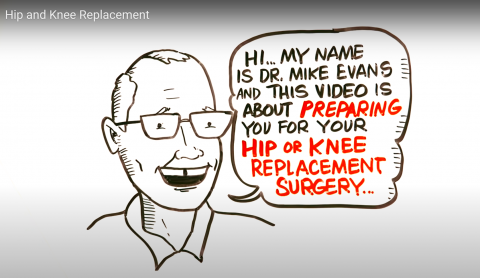
Hip and Knee Replacement Surgery
Hip and Knee Replacement Surgery
Topic
Pain and SurgeryPresented by: Dr. Mike Evans, MD, founder of the Health Design Lab at the Li Ka Shing Knowledge Institute, Associate Professor of Family Medicine and Public Health at the University of Toronto, and staff physician at St. Michael's Hospital.
Summary: In this 7-minute Visual Whiteboard Lecture, Dr. Evans explains how to prepare for hip and knee replacement surgery.
Hip and Knee Replacement Surgery offers
Videos
Your Complete Guide to Total Hip Replacement Surgery
Your Complete Guide to Total Hip Replacement Surgery
Topic
Pain and Surgery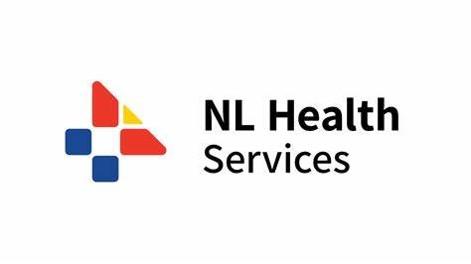
Developed by: This guide was updated with permission for online use from "A Patient’s Guide to Total Hip Replacement Surgery" developed by the Total Joint Assessment Clinic staff for patients at the Newfoundland and Labrador Health Services (NLHS).
Summary: This interactive guide contains detailed information to help patients prepare for and recover from their Total Hip Replacement Surgery. Divided in 8 modules, the information provided includes:
- Preparation considerations before and after surgery;
- Details about the surgery and what to expect;
- Activities and exercises during recovery;
- Additional useful resources you can explore.
Click "Go to Resource" to access this interactive guide.
Note: You will need a Power Over Pain Portal account to access this guide. If you would like an electronic copy of the NLHS original guide, click on the image below.
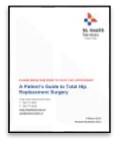
Your Complete Guide to Total Hip Replacement Surgery offers
Self-directed Courses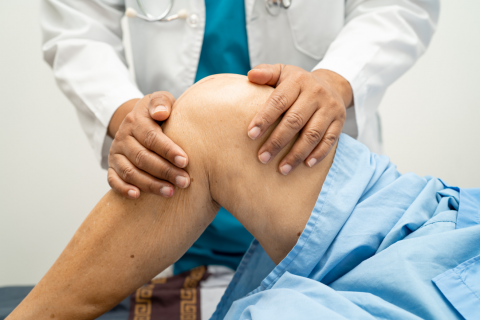
Your Complete Guide to Total Knee Replacement Surgery
Your Complete Guide to Total Knee Replacement Surgery
Topic
Pain and Surgery
Developed by: This guide was updated with permission for online use from "A Patient’s Guide to Total Knee Replacement Outpatient Surgery" developed by the Total Joint Assessment Clinic staff for patients at the Newfoundland and Labrador Health Services (NLHS).
Summary: This interactive guide contains detailed information to help patients prepare for and recover from their Total Knee Replacement Surgery. Divided in 8 modules, the information provided includes:
- Preparation considerations before and after surgery;
- Details about the surgery and what to expect;
- Activities and exercises during recovery;
- Additional useful resources you can explore.
Click "Go to Resource" to access this interactive guide.
Note: You will need a Power Over Pain Portal account to access this guide. If you would like an electronic copy of the NLHS original guide, click on the image below.
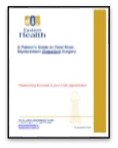
Your Complete Guide to Total Knee Replacement Surgery offers
Self-directed Courses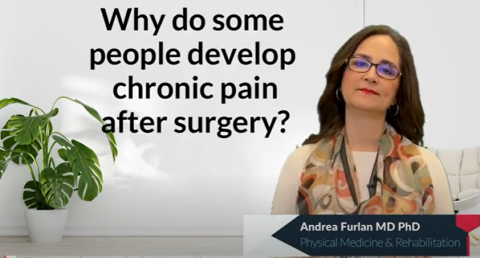
Is Surgery Putting You at Risk of Chronic Pain?
Is Surgery Putting You at Risk of Chronic Pain?
Topic
Pain Pain and Surgery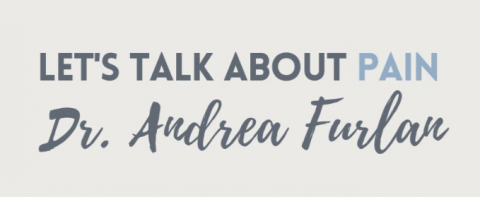
Presented by: Dr. Andrea Furlan, MD, pain specialist, Professor in the Department of Medicine at the University of Toronto and a Staff Physician and Senior Scientist at the Toronto Rehabilitation Institute.
Summary: In this 20-minute video, Dr. Andrea Furlan explains why some people will develop chronic pain after a surgical procedure. And what can be done to prevent and treat this kind of chronic postsurgical pain.
Is Surgery Putting You at Risk of Chronic Pain? offers
Videos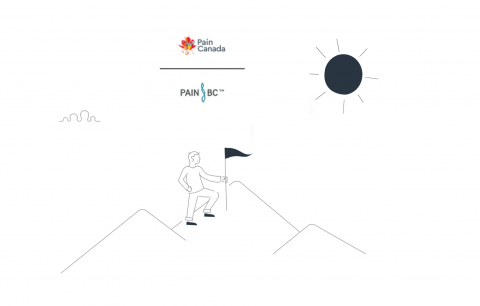
Managing Pain Before and After Surgery: A course for people undergoing surgery
Managing Pain Before and After Surgery: A course for people undergoing surgery
Topic
Pain and Surgery
Offered by: Pain Canada in partnership with ManagingLife.
Summary: Pain after surgery is common and usually managed with medications. Evidence shows that learning about pain before their operation helps people undergoing surgery to set realistic expectations about pain, use prescribed medications safely, and improves their well-being and comfort. Managing Pain Before and After Surgery is a free self-paced online program designed to help people undergoing surgery and their families better manage pain after surgery and decrease complications.
The brief course is made up of three modules (about 30-45 min per module):
- Module one: Preparing for surgery
- Module two: Pain after surgery
- Module three: For people experiencing chronic pain prior to their surgery
Note: This course was developed, as part of a research study (the Preoperative Education Initiative: A Prospective Observational Study), to explore how an education program can impact participants’ pain management before and after surgery. While completing the course, consider joining the research study to contribute to advancing the evidence supporting this program.
Managing Pain Before and After Surgery: A course for people undergoing surgery offers
Self-directed Courses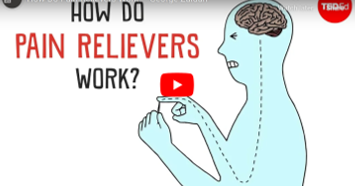
How Do Pain Relievers Work?
How Do Pain Relievers Work?
Topic
Pain
Presented by: George Zaidan, animated by Augenblick Studios. George Zaidan is a science communicator, television and web host, and producer.
Summary: In this 4-minute video, learn about the basic physiology of how humans experience pain, and the mechanics of the medicines we've invented to block or circumvent that discomfort.
How Do Pain Relievers Work? offers
Videos
My SleepWell
My SleepWell
Topic
SleepDeveloped by: Drs. David Gardner and Andrea Murphy from Dalhousie University, Halifax, Nova Scotia, Canada and contributed to by psychologists, psychiatrists, family doctors, pharmacists, people who live with insomnia, researchers, and sleep experts to make sure that our recommendations and content are accurate and practical.
Summary: Sleepwell has two main goals: 1) to help people with insomnia get their sleep back without medications; and 2) to help people stop taking sleeping pills safely and effectively. Sleepwell recommends CBTi (cognitive behavioural therapy for insomnia) because it has excellent evidence that it works. The challenge for many is getting access to CBTi. This is where Sleepwell comes in. The website includes a highly scrutinized short list of recommended CBTi resources to help get you started without delay. Their recommendations take a self-help approach to CBTi rather than requiring that a therapist be involved, which is also a great option but not available to most people.
My SleepWell offers
Articles Tools and Resources
Conversations of Substance
Conversations of Substance
Topic
Substance UseDeveloped by: The Community Addictions Peer Support Association (CAPSA). CAPSA is a national organization of subject matter experts, researchers and educators dedicated to changing approaches to Substance Use Health through training, education and consulting.
Summary: This podcast series was created to talk about substance use health - something that can be hard for many of us. Tune in if you are curious about substance use health or have questions about it. There will be difficult questions about substance use that often don’t have easy answers. CAPSA’s aim is not to be confrontational, but also not to shy away from controversial ideas. Be open to hearing them on their podcast!
Conversations of Substance offers
Podcasts
Learn about ongoing pain after surgery
Learn about ongoing pain after surgery
Topic
Pain and SurgeryDeveloped by: The Transitional Pain Service at the Toronto General Hospital.
Summary: Research studies show that learning more about how pain works helps people cope better and manage their own pain. This self-directed learning course aims to better prepare patients for transitional pain care or pain after surgery. Access this 7-module course to learn about pain after surgery, how it can become chronic and how to manage it.
Learn about ongoing pain after surgery offers
Self-directed Courses
Well Central
Well Central
Topic
Mood Substance Use
Developed by: The Canadian Mental Health Association (CMHA).
Summary: Well Central is an accessible and completely free virtual Recovery College. Well Central offers interactive courses that empower individuals to take control of their mental health and well-being. Well Central offers a tailored online journey providing support, resources and guided courses, valuing each visitor’s unique experience. Courses include:
- Well-being course;
- Recovery 101;
- Overcoming Loneliness and Isolation;
- Developing Self Compassion;
- Postpartum Emotional and Mental Health.
Well Central offers
Self-directed CoursesDon't see what you're looking for?
We routinely add new resources to the Portal. Stay up-to-date through our monthly newsletter!
Discover Portal Services
About
Experiencing pain after surgery is normal and is often due to inflammation in the part of the body where surgery occurred. This type of pain is called acute post-surgical pain and is short-term, generally less than three months. However, 5-10% of patients who undergo major surgery develop chronic post-surgical pain, which is pain that persists past the normal healing process (generally longer than three months).
Symptoms
Pain following surgery lasting beyond the expected healing time, localized at the surgery site.
Risks
You have greater risk in developing chronic post-surgical pain if you are struggling with pain management or have an:
- History of depression and/or anxiety
- History of substance dependency or addiction
- History of chronic pain
- History of use of opioid medication
Road to Recovery
To prevent long-term, excessive opioid use or the development of chronic pain and related disability following surgery, programs offering multidisciplinary services are available in some regions. Pioneered at the Toronto General Hospital's Department of Anesthesia and Pain Management (Pain Clinic | Transitional Pain Service | Toronto), these programs offer what we call “Transitional Pain Care” where support is provided to high-risk patients before and after surgery. Talk to your local healthcare provider if these programs may be available in your region.
NLHS Transitional Pain Program
At the NLHS, the Transitional Pain Program (TPP) focuses on treating patients undergoing Total Knee and Total Hip Arthroplasty that are at risk of transitioning from acute to chronic pain following surgery. The Program is designed to offer additional pain management beyond the services provided by the Total Joint Arthroplasty Clinic at NLHS. The goal of this innovative program is to provide patients with additional resources to avoid ongoing pain and achieve the best outcome possible from their surgery. The NLHS Transitional Pain Program also helps patients who take high dose opioids and need help with medication management and opioid weaning. The Program uses a multidisciplinary treatment approach that addresses the medical, psychological, and physical components of pain management.
If you are part of the NLHS Transitional Pain Program, we invite you to consult the following resources to learn more about the Program and additional resources to help you optimize your success to recovery.
Resources for Chronic Post-Surgical Pain
The Role of Psychology in the Treatment of Pain
The Role of Psychology in the Treatment of Pain
Topic
Pain and SurgeryDeveloped by: The Transitional Pain Service at the Toronto General Hospital.
Summary: The effective treatment of ongoing pain involves a combination of approaches that focus on the body and mind. This self-directed learning course aims to better prepare patients for transitional pain care or pain after surgery. Access this 7-module course to learn how psychological techniques and strategies can help in managing pain. This course also includes information and resources to help you prepare for an appointment with a pain psychologist at a transitional pain clinic near you.
The Role of Psychology in the Treatment of Pain offers
Self-directed Courses
Prehabilitation: Better before. Better after.
Prehabilitation: Better before. Better after.
Topic
Pain and SurgeryPresented by: The Doctors of British Columbia (BC) and the BC Government.
Summary: These videos were created for the BC Patient Prehabilitation Program, as part of the Surgical Patient Optimization Collaborative (SPOC), an initiative of the Doctors of BC and BC Government through the Joint Collaborative Committees. BC Surgical Patient Prehabilitation is designed to assist patients to prepare for an elective procedure, so they experience improved outcomes from their surgery. It focuses on both the mental and physical aspects of surgery, therefore decreasing pre-surgical risk factors so that patients can obtain high quality outcomes from their surgery. With these 14 short videos (1-2 minutes each), you will learn about prehabilitation and all its components.
Prehabilitation: Better before. Better after. offers
Videos
Hip and Knee Replacement Surgery
Hip and Knee Replacement Surgery
Topic
Pain and SurgeryPresented by: Dr. Mike Evans, MD, founder of the Health Design Lab at the Li Ka Shing Knowledge Institute, Associate Professor of Family Medicine and Public Health at the University of Toronto, and staff physician at St. Michael's Hospital.
Summary: In this 7-minute Visual Whiteboard Lecture, Dr. Evans explains how to prepare for hip and knee replacement surgery.
Hip and Knee Replacement Surgery offers
Videos
Your Complete Guide to Total Hip Replacement Surgery
Your Complete Guide to Total Hip Replacement Surgery
Topic
Pain and Surgery
Developed by: This guide was updated with permission for online use from "A Patient’s Guide to Total Hip Replacement Surgery" developed by the Total Joint Assessment Clinic staff for patients at the Newfoundland and Labrador Health Services (NLHS).
Summary: This interactive guide contains detailed information to help patients prepare for and recover from their Total Hip Replacement Surgery. Divided in 8 modules, the information provided includes:
- Preparation considerations before and after surgery;
- Details about the surgery and what to expect;
- Activities and exercises during recovery;
- Additional useful resources you can explore.
Click "Go to Resource" to access this interactive guide.
Note: You will need a Power Over Pain Portal account to access this guide. If you would like an electronic copy of the NLHS original guide, click on the image below.

Your Complete Guide to Total Hip Replacement Surgery offers
Self-directed Courses
Your Complete Guide to Total Knee Replacement Surgery
Your Complete Guide to Total Knee Replacement Surgery
Topic
Pain and Surgery
Developed by: This guide was updated with permission for online use from "A Patient’s Guide to Total Knee Replacement Outpatient Surgery" developed by the Total Joint Assessment Clinic staff for patients at the Newfoundland and Labrador Health Services (NLHS).
Summary: This interactive guide contains detailed information to help patients prepare for and recover from their Total Knee Replacement Surgery. Divided in 8 modules, the information provided includes:
- Preparation considerations before and after surgery;
- Details about the surgery and what to expect;
- Activities and exercises during recovery;
- Additional useful resources you can explore.
Click "Go to Resource" to access this interactive guide.
Note: You will need a Power Over Pain Portal account to access this guide. If you would like an electronic copy of the NLHS original guide, click on the image below.

Your Complete Guide to Total Knee Replacement Surgery offers
Self-directed Courses
Is Surgery Putting You at Risk of Chronic Pain?
Is Surgery Putting You at Risk of Chronic Pain?
Topic
Pain Pain and Surgery
Presented by: Dr. Andrea Furlan, MD, pain specialist, Professor in the Department of Medicine at the University of Toronto and a Staff Physician and Senior Scientist at the Toronto Rehabilitation Institute.
Summary: In this 20-minute video, Dr. Andrea Furlan explains why some people will develop chronic pain after a surgical procedure. And what can be done to prevent and treat this kind of chronic postsurgical pain.
Is Surgery Putting You at Risk of Chronic Pain? offers
Videos
Managing Pain Before and After Surgery: A course for people undergoing surgery
Managing Pain Before and After Surgery: A course for people undergoing surgery
Topic
Pain and Surgery
Offered by: Pain Canada in partnership with ManagingLife.
Summary: Pain after surgery is common and usually managed with medications. Evidence shows that learning about pain before their operation helps people undergoing surgery to set realistic expectations about pain, use prescribed medications safely, and improves their well-being and comfort. Managing Pain Before and After Surgery is a free self-paced online program designed to help people undergoing surgery and their families better manage pain after surgery and decrease complications.
The brief course is made up of three modules (about 30-45 min per module):
- Module one: Preparing for surgery
- Module two: Pain after surgery
- Module three: For people experiencing chronic pain prior to their surgery
Note: This course was developed, as part of a research study (the Preoperative Education Initiative: A Prospective Observational Study), to explore how an education program can impact participants’ pain management before and after surgery. While completing the course, consider joining the research study to contribute to advancing the evidence supporting this program.
Managing Pain Before and After Surgery: A course for people undergoing surgery offers
Self-directed CoursesRelated resources to Chronic Post-Surgical Pain

How Do Pain Relievers Work?
How Do Pain Relievers Work?
Topic
Pain
Presented by: George Zaidan, animated by Augenblick Studios. George Zaidan is a science communicator, television and web host, and producer.
Summary: In this 4-minute video, learn about the basic physiology of how humans experience pain, and the mechanics of the medicines we've invented to block or circumvent that discomfort.
How Do Pain Relievers Work? offers
Videos
My SleepWell
My SleepWell
Topic
SleepDeveloped by: Drs. David Gardner and Andrea Murphy from Dalhousie University, Halifax, Nova Scotia, Canada and contributed to by psychologists, psychiatrists, family doctors, pharmacists, people who live with insomnia, researchers, and sleep experts to make sure that our recommendations and content are accurate and practical.
Summary: Sleepwell has two main goals: 1) to help people with insomnia get their sleep back without medications; and 2) to help people stop taking sleeping pills safely and effectively. Sleepwell recommends CBTi (cognitive behavioural therapy for insomnia) because it has excellent evidence that it works. The challenge for many is getting access to CBTi. This is where Sleepwell comes in. The website includes a highly scrutinized short list of recommended CBTi resources to help get you started without delay. Their recommendations take a self-help approach to CBTi rather than requiring that a therapist be involved, which is also a great option but not available to most people.
My SleepWell offers
Articles Tools and Resources
Conversations of Substance
Conversations of Substance
Topic
Substance UseDeveloped by: The Community Addictions Peer Support Association (CAPSA). CAPSA is a national organization of subject matter experts, researchers and educators dedicated to changing approaches to Substance Use Health through training, education and consulting.
Summary: This podcast series was created to talk about substance use health - something that can be hard for many of us. Tune in if you are curious about substance use health or have questions about it. There will be difficult questions about substance use that often don’t have easy answers. CAPSA’s aim is not to be confrontational, but also not to shy away from controversial ideas. Be open to hearing them on their podcast!
Conversations of Substance offers
Podcasts
Learn about ongoing pain after surgery
Learn about ongoing pain after surgery
Topic
Pain and SurgeryDeveloped by: The Transitional Pain Service at the Toronto General Hospital.
Summary: Research studies show that learning more about how pain works helps people cope better and manage their own pain. This self-directed learning course aims to better prepare patients for transitional pain care or pain after surgery. Access this 7-module course to learn about pain after surgery, how it can become chronic and how to manage it.
Learn about ongoing pain after surgery offers
Self-directed Courses
Well Central
Well Central
Topic
Mood Substance Use
Developed by: The Canadian Mental Health Association (CMHA).
Summary: Well Central is an accessible and completely free virtual Recovery College. Well Central offers interactive courses that empower individuals to take control of their mental health and well-being. Well Central offers a tailored online journey providing support, resources and guided courses, valuing each visitor’s unique experience. Courses include:
- Well-being course;
- Recovery 101;
- Overcoming Loneliness and Isolation;
- Developing Self Compassion;
- Postpartum Emotional and Mental Health.
